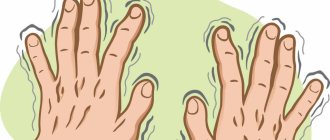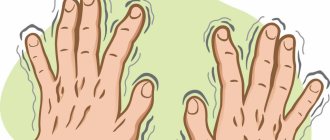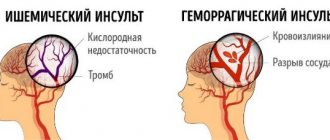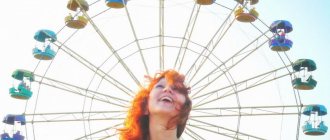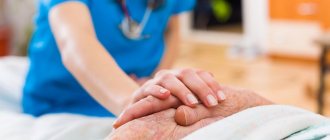Traditional treatment
To avoid dizziness attacks, experts recommend drinking tea with ginger, mint, and linden. Be sure to eat seaweed and other foods enriched with iodine and phosphorus.
You can also use the following folk methods at home:
Drink half a glass of carrot juice before each main meal.
1/3 cup of carrot juice is mixed with 1/2 cup of pomegranate juice. Take a fortified drink before meals three times a day.
- Garlic tincture. Frequent attacks of dizziness can be stopped with this simple, affordable remedy. 300 g of garlic are placed in a half-liter jar and filled to the top with alcohol. Cover tightly with a lid and hide in a dark place for 2 weeks. Take 20 drops diluted in a glass of boiled milk.
- Ginger root is ground into powder. A quarter of a teaspoon is diluted in a glass of warm water and drunk three times a day. You can add 2 tablespoons of crushed lemon balm leaves to the drink. Before use, the product must be left for 20 minutes.
- Hawthorn fruits are ground. A glass of crushed berries is poured with alcohol, covered with a lid and left for 3 weeks. After straining, the tincture is taken one teaspoon at a time with a glass of warm liquid after lunch and dinner.
Herbs for dizziness
There are plants that help with nausea and severe dizziness. They are brewed, infused, steamed and taken in courses of 10-12 days:
- Nettle decoction helps with weakness and dizziness. To prepare a healing potion, pour 1 tablespoon of dry nettle leaves into a glass of boiling water. After 2-3 hours of infusion and straining, the broth is mixed in equal proportions with apple juice. Use the medicine before the main meal, taking 50 ml. Often, the symptoms of this unpleasant condition disappear after 2 weeks of treatment.
- Herbal collection. The beneficial properties of linden have long been known to traditional healers. It perfectly fights dizziness and is especially effective as part of training camps. 100 g of dry peppermint leaves, 75 g of linden flowers, 50 g of peony root are mixed. 2 tbsp. spoons of the resulting raw material are poured into 0.5 liters. boiling water and place in a warm place for 10-12 hours. It is better to prepare the medicine in a thermos. During the day, drink the decoction before eating the main meal, dividing it into 3-4 parts.
- 1 tbsp. l. lemon balm pour boiling water and wait 1 hour. After straining, drink the decoction in small sips throughout the day.
- 1 tsp. clover flowers are poured with a glass of boiling water. Cook over low heat for 5-7 minutes, cool, filter. Drink 1 tbsp. l. four times a day before meals.
- For 1 tsp. crushed parsley seeds, take a glass of warm water. The product is left for 8 hours, and after straining, drink in small portions throughout the day.
- Melissa inflorescences collected before flowering are squeezed, and the resulting juice is taken in 40-50 drops mixed with 1 tsp. honey
- 1 tbsp. l. crushed plantain leaves are poured with a glass of boiling water, covered and allowed to brew. After straining, the infusion is mixed with a spoonful of honey and taken a teaspoon before bedtime. The course of therapy is 10 days.
Aromatherapy
At home, treatment can be carried out with the following essential oils:
- Mint.
- Cypress.
- Sage.
- Roses.
- Rosemary.
- Lavender.
- Citrus
The substances contained in them have invigorating, tonic, and refreshing properties. If you feel approaching nausea and feel that objects are spinning around you, you need to put a few drops of oil on a cotton pad and bring it to your nose.
Self-massage
It is necessary to take medications for dizziness if the doctor has identified a certain ailment, the symptoms of which are nausea, loss of orientation in space, and weakness. To relieve the symptoms of dizziness caused by a physiological condition, you can resort to self-massage. It should be carried out lying down, with your head and shoulders comfortably placed:
- Using your fingertips, you should perform rotational movements in the forehead area clockwise and counterclockwise.
- Moving to the temples, you need to massage the skin from the crown to the crown, the top of the ears and to the back of the head.
- Fingers should be locked, palms pressed to the back of the head and several circular movements from top to bottom, from right to left.
Self-massage is an effective way to relieve headaches and dizziness.
Methods and recipes for noise in the head
A mixture of ammonia and water works well for dizziness and tinnitus. Add a quarter spoon of ammonia to a glass of water, soak a piece of gauze in the liquid and place it on your forehead. It is advisable to do this compress throughout the week in the morning.
Nettle decoction is good for weakness, stimulates blood flow in the heart muscle, improves nerve conduction and calms the nervous system.
- Brew a handful of dry nettle leaves with boiling water, leave to brew for 2-3 hours in a dark place under a lid.
- Strain and drink 50 ml before breakfast, lunch and dinner.
To improve the taste, you can add apple juice (the same amount) to the broth. After a couple of weeks of treatment, the discomfort will completely disappear.
Remember that individual components (garlic, honey) can provoke an allergic reaction. If 14 days have passed since the start of treatment and there is no result, try another remedy.
Recommendations and tips
Home treatment will be most effective if you lead a healthy lifestyle. Some simple recommendations and tips will help with this:
Daily regime
It is important to go to bed and get up at the same time, without leaving long gaps between sleep. If a person falls asleep, either early in the evening or closer to the morning, then the head will constantly feel dizzy, which will be accompanied by other symptoms
Proper nutrition. You need to watch your diet. It should contain products that replenish all minerals and vitamins. It is advisable to give up alcohol, coffee, salty and sweet foods, or consume them in moderation without overeating. Physical activity and lifestyle. A person who spends a lot of time sitting should do exercises regularly. You need to warm up at least every half hour for a few seconds. It’s even better if you exercise regularly - this is another way to normalize your condition and cure dizziness at home. But you should warm up only if a person feels good and does not lose orientation. Walks in the open air. Even a short stay in the fresh air will help normalize well-being, especially if the patient spends most of his time in a stuffy room. You should also open the window before going to bed, ventilate the apartment more often, or purchase a special air humidifier. Thermal impact. For people suffering from severe dizziness, another effective method of treatment at home is a regular heating pad. It should be applied to the back of the head while in a lying position. It is advisable to wait at least 10 minutes. Massage. Massage of the temples and the back of the head will help both after dizziness and at its height. Don't put too much pressure on your head. You can use special hand massagers or a regular comb with a large number of teeth.
If you experience frequent dizziness, you should pay attention to the quality of your sleep. It is not recommended to sleep without a pillow or, conversely, on a pillow that is too high
This is especially important for diseases of the cervical spine. You can minimize or completely eliminate dizziness due to osteochondrosis if you choose a comfortable pillow so that your neck does not become overstrained during sleep.
Dizziness, as a symptom, does not pose a danger to human life. However, sometimes it indicates serious health problems, including tumors and ruptured blood vessels.
Editor's note: What foods are good for the brain?Before starting any therapy, it is important to listen to the advice given by traditional healers. In most cases, they allow you to reduce the manifestation of this unpleasant symptom without harming your own health.
- If you decide to treat dizziness with folk remedies, you first need to make sure that you are not allergic to the components of the remedies. It is also worth consulting with your doctor about their compatibility with the medications you are taking.
- When you feel dizzy on the road, you can try to focus your gaze on one stationary object. Some people get rid of this disorder by simply closing their eyes, while others need to look into the distance.
- During therapy, you should try as much as possible to exclude the following foods from your diet: cheeses, spicy and fatty foods, sweets and baked goods. It is better to limit the amount of salt you consume. The diet should be varied with seafood, nuts, legumes and bananas.
- At home, simple rest can help with dizziness. You can lie down for a while and wait out the attack. It’s also not worth risking your health at work. You can lean back in your chair. If rest does not help, you need to seek help from a doctor.
- During therapy, it is necessary to constantly keep a health diary. It should record blood pressure and blood glucose readings every day. You can notice after which attack the malaise appeared. For example, after a sharp turn of the head or mental stress. This information will be useful to the attending physician.
Such simple recommendations will only benefit everyone. Using a health diary, you can try to determine the cause of your illness, and through diet, you can cope with migraines. What other ways traditional healers offer to combat dizziness will be discussed further.
Symptoms of high blood pressure
High blood pressure is often called the "silent killer" because in most cases it causes no symptoms. The only way to find out if it is there is to measure it with a tonometer. High blood pressure can sometimes be accompanied by one or more of the following symptoms:
- Strong headache;
- dyspnea;
- dizziness;
- nosebleeds;
- severe anxiety.
Usually the headache is in the back of the head; during crises, one often feels dizzy and is accompanied by nausea and vomiting.
The best drugs for dizziness with disorders of the vestibular apparatus
Violation of the vestibular apparatus also requires taking pills for nausea and dizziness. Their main task is to influence special histamine receptors that are located in the vessels of the inner ear. It can be taken once in case of long trips in transport, or as a course for maximum therapeutic effect. The top rating of 2021 presented 2 drugs in this category.
Dramamine
The active substance in the composition is dimenhydrinate, which inhibits the increased activity of the vestibular apparatus analyzer. As a result, taking the tablet suppresses nausea, the urge to vomit with all the ensuing consequences, and gives a moderate antiallergic effect
Most often, Dramamine is used to prevent motion sickness on airplanes, vehicles, and ships; for this, it is important to take the tablet an hour before travel. Doctors prescribe tablets for a course of treatment for Minière's syndrome, epilepsy, and other vestibular pathologies
Age limit: from 1 year of age; use in the first trimester of pregnancy is not recommended.
Advantages
- Performance;
- Prevention of motion sickness;
- One-time, course admission;
- Over-the-counter sale;
- Minimum restrictions;
- Children allowed;
- Inexpensive.
Flaws
- Possible side effects;
- Causes drowsiness.
The tablets not only calm the vestibular apparatus, but relieve muscle tone in all internal organs and prevent motion sickness in any type of transport. The advantages include quick help within 15 minutes, minimal restrictions, and price. The weaknesses of this treatment are drowsiness and the presence of side effects.
Relanium
A modern second-generation anxiolytic drug belonging to the group of tranquilizers. Most often prescribed by doctors for muscle spasms, nervous strains, anxiety disorders, as well as in various cases of damage to the cervical spine. The active component in the composition is diazepam, which enhances the effect of the inhibitory neurotransmitter, on which the transmission of nerve impulses directly depends. Widely used in medicine as a muscle relaxant, hypnotic, and sedative. There are no age restrictions; Relanium is prohibited for use during pregnancy and lactation. Available in the form of an injection solution.
Advantages
- Removing mental and nervous excitement;
- High efficiency;
- Emergency help;
- Sedative, hypnotic effect;
- Children allowed;
- Relieving cramps;
- Inexpensive.
Flaws
- May be addictive;
- Sale by prescription.
In medical practice, Relanium is used in emergency cases when it is necessary to quickly relieve attacks of nervous and mental agitation. Course treatment is also practiced, but strictly under the supervision of a doctor.
High blood pressure danger
A hypertensive crisis (high blood pressure or BP) is a condition when blood pressure rises quickly and sharply, with readings of 180/120 or higher. The consequences of uncontrolled blood pressure in this range can be serious and include:
- stroke;
- loss of consciousness with dangerous injuries;
- memory loss;
- acute cardiovascular diseases;
- eye damage and visual disturbances;
- loss of kidney function;
- aortic dissection;
- angina pectoris (unstable chest pain);
- Pulmonary edema (fluid reserve in the lungs).
If you have been diagnosed with high blood pressure, monitor your readings and take your medications. During an emergency, having the notes with you can provide valuable information to the medical team providing treatment.
Causes of dizziness
When a person feels a loss of balance, instability, this condition is medically called vertigo or dizziness. The situation is accompanied by unpleasant symptoms. The patient may feel during an attack:
- uncertain position of the body in space;
- feeling of objects spinning around;
- leaving the ground from under your feet;
- feeling that your head is starting to spin;
- increased sweating;
- increased heart rate;
- nausea;
- noise in ears;
- general weakness.
The vertigo condition sometimes does not last long. It can be corrected by taking medications. Dizziness is often caused by:
- stuffiness in the room;
- prolonged fasting;
- great physical activity;
- stressful situations;
- feeling of panic;
- motion sickness in transport;
- flying on an airplane;
- hangover;
- intoxication with toxic substances;
- sudden change in body position when standing up.
Dizziness can be caused by diseases and pathological conditions of the patient. In such situations, the duration of the attack is sometimes several hours. In this case, to find out the cause of vertigo and prescribe medications, you need to contact a specialist. Indications for the use of drugs for dizziness may include:
- pregnancy;
- menopause;
- menstruation;
- decreased blood sugar;
- thyroid dysfunction;
- traumatic brain injuries;
- cervical osteochondrosis.
Dizziness often occurs for the following reasons:
- Damage to nerve endings, impaired blood supply to the brain caused by migraine, tumors, meningitis, epilepsy.
- Pathologies of blood vessels and heart - anemia, coronary disease, arrhythmia, changes in blood pressure (BP).
- Disturbances in the functioning of the vestibular apparatus as a result of damage to the auditory nerve, trauma, dropsy of the inner ear, purulent processes, Meniere's syndrome (disease of the inner ear).
What causes high blood pressure
For most people, there is no single cause for high blood pressure. However, there are a number of factors that increase the likelihood of developing hypertension. These are the so-called risk factors - controllable and uncontrollable. You can adjust:
- . When a person smokes, the incoming nicotine increases blood pressure. Over time, this damages the arteries, increasing the risk of heart attack or stroke.
- Eating excess processed foods and salt. Many processed foods contain a lot of salt. Excess salt intake causes the body to store excess water, which increases blood pressure.
- Drinking excess alcohol too often. Drinking alcohol temporarily increases blood pressure. Excessive alcohol consumption on a regular basis can lead to hypertension.
- Excess weight. Excess weight increases the risk of high blood pressure. Even losing just a few pounds can lower your blood pressure.
- Insufficient activity. If a person moves more and sits less, blood pressure decreases.
- . Hormones produced by the body during stress increase blood pressure. Researchers are still trying to understand the exact link between long-term high blood pressure and ongoing stress.
Uncontrollable risk factors include:
- . If a patient has type 1 or type 2 diabetes, they are twice as likely to develop high blood pressure.
- Kidney disease or other gland problems. Sometimes a serious disease that affects the kidneys, arteries, heart, or endocrine system can cause high blood pressure.
- Aging. Blood pressure naturally increases with age.
- Taking certain medications, such as birth control pills.
- A parent or sibling with high blood pressure. High blood pressure runs in families, so if parents or siblings have problems, the risk of hypertension increases.
What does alternative medicine offer for dizziness?
This condition has happened to everyone at least once in their life. Both an adult and a child can feel at any moment how the ground disappears from under their feet, and surrounding objects begin to rotate faster and faster, causing nausea, weakness, the appearance of “spots” in the eyes and poorly controlled swaying of the body from side to side.
Dizziness can occur for many reasons. Head injuries, pregnancy, atherosclerosis, age-related changes, benign and malignant formations, dysfunction of the nervous system, stress in the end - all this provokes vestibular disorder.
Without detracting from the advantages of drug therapy, we will discuss folk remedies that are often recommended by doctors themselves as an addition to the treatment regimen.
Single-component drugs
How can they treat the disease?
- Inhaling the smell of chopped onions (2-3 minutes) will help to quickly relieve an attack of dizziness.
- Sea kale contains a large amount of iron and iodine, so people suffering from frequent dizziness need to eat it more often - preferably every day, 300-400 g.
From the editor: How to properly prepare for an MRI and what you need to know
Doctors strongly advise limiting or completely eliminating tea, coffee and carbonated drinks from the diet if the patient suffers from frequent dizziness. It is better to give preference to herbal decoctions: brew linden blossom, mint, lemon balm, hawthorn.
Juice treatment
- Squeeze the juice from fresh lemon and apply a few drops to your temples - this will help restore coordination and relieve lightheadedness.
- A mixture of beetroot and cranberry juice helps strengthen the walls of blood vessels: drink half a glass once a day.
Tinctures
- Pour half a glass of boiling water over a teaspoon of red clover inflorescences, leave to steep for 2-3 hours, covered, and cool. Take 50 ml half an hour before meals 2 times a day. The course of treatment is 2 weeks.
- Sage tea will help improve your overall well-being and calm your nerves. A handful of inflorescences are poured with hot water and the infusion is drunk half an hour before meals.
- Elecampane root is ground into powder, a pinch is poured with boiling water (200 ml) and filtered after 30 minutes. Take 3-4 times a day. Elecampane relieves fatigue and improves the functioning of the vestibular apparatus.
- Parsley seeds are also used as a folk remedy for dizziness. For 1 spoon of raw material, take a glass of boiling water, brew and leave for 8 hours. Strain, take 50 ml before meals. The course of treatment is a week.
- Chestnut tincture is especially helpful for women suffering from dizziness during menopause. Pour 2 large spoons of fresh buds into 500 ml of Cahors (70 degrees), heat in a water bath, cool. You can sweeten the tincture with honey. You are allowed to take 50 ml of the product per day according to the following scheme: drink for a week, rest for a week.
Oils
Essential oils have a tonic and invigorating effect. They can be used for massage, added to a bath or aroma lamp.
- Drop a little peppermint oil on a handkerchief and inhale its aroma if you feel sick in transport. To massage the neck and head, add 2 drops of lemon, rosemary and mint oil to a spoon of base (olive or almond).
- Mix essential oils of juniper, fir and camphor in a ratio of 1:3:10 and rub the resulting mixture into the back of the head, temples and lymph nodes. It will help quickly relieve discomfort. Lavender oil will have the same effect.
- You can take a course of inhalations with cinnamon oil: add 2-3 drops of oil to 0.5 liters of hot water and breathe over the vessel for 5-7 minutes. Give 7 inhalations every other day. Such inhalations are contraindicated for children and pregnant women.
Herbal medicine, oils and other components do not help immediately - the course of treatment should last at least two weeks. Prepare the medicine strictly according to the prescription, maintaining all dosages.
Healing tinctures
Garlic tincture is effective for vestibular disorders, the development of which is provoked by infections, disturbances in the functioning of the heart muscle, or toxins. To prepare it, you need to combine 200 g of crushed raw materials with 0.5 liters of regular alcohol. It is recommended to store the resulting medicine in a glass container in the refrigerator. After 2 weeks you can start taking it. The finished tincture should be mixed with milk (20 drops per 100 ml of liquid).
Chestnut-based tincture helps normalize the functioning of blood vessels and improve overall well-being. The buds of this plant should be crushed and mixed with hot Cahors (four tablespoons per liter of liquid). The mixture must be heated in a water bath for about 15 minutes, and then cooled. You can add vanilla extract and a small amount of honey to the finished folk remedy. It is advisable to take 50 ml of the tincture before meals.
Treatment of dizziness with the folk remedies listed above is impossible without first consulting a doctor. These recipes often contain alcohol and other substances that negatively affect the health of many people.
The need for diagnostics
Diagnosis is based on determining the cause of what causes dizziness at normal blood pressure. This requires a history and a simple neuro-otological examination. Often these measures are sufficient to distinguish the origin of vertigo (in the peripheral or central vestibular apparatus).
Dysfunction of the vestibular system is manifested by a combination of the following symptoms taken into account in the diagnosis:
- perceptual (dizziness);
- ocular (nystagmus, lack of equilibrium reflex);
- postural (ataxia - imbalance);
- vegetative (nausea, vomiting).
Dizziness caused by imbalances as a result of a disorder of the inner ear system is not fatal, although it is very unpleasant and irritating. Its common cause is a blockage of the cervical spine, which can be eliminated with the help of medications, massage, and physiotherapy.
Balance disorders with a neurological cause may indicate a serious illness. If the problem is caused by a stroke, only the consequences are eliminated. In the case of an operable brain tumor, neurosurgical intervention is prescribed.
Sometimes, based on the time factor (duration of the symptom), it is possible to predict a nosological unit.
| Duration | Nosological unit |
| Seconds | Brief dizziness |
| minutes | Short-term deficiency of blood supply to the equilibrium apparatus of the brain |
| Watch | Meniere's disease, basilar migraine |
| Days | Inflammation of the equilibrium nerve, damage to the labyrinth (head injury), fracture of the temporal bone |
| weeks | Disturbance of the brain's equilibrium center, multiple sclerosis |
A basic examination includes a general and biochemical blood test, electrocardiographic examination, computed tomography and/or x-ray examination of the cervical spine, and magnetic resonance imaging of the brain. Depending on the detected violations, additional studies may be prescribed.
Dizziness can be either the primary, sole, or secondary symptom.
It is impossible to judge the seriousness (or non-seriousness) of a condition by this criterion alone. If a person experiences vertigo for several days in a row, this is a sure sign that he should see a doctor without delay, even if there are no other symptoms.
To identify the causes of dizziness, the patient should consult a neurologist. The doctor will do a Dix-Hallpike test, a test for the integrity of the vestibulo-ocular reflex and other instrumental studies (if necessary) - posturography, a rotating chair.
In addition, tests are prescribed:
- Complete blood count, glucose level, biochemistry.
- Electrocardiogram.
- X-ray or CT scan of the cervical spine.
- Vascular examination.
- MRI of the brain (if there is a suspicion of tumor processes).
The specialist will also ask a number of clarifying questions to clarify the provoking component.
It is also important what stops an attack of dizziness (food, fresh air or a sip of water)
Diagnosis of dizziness in older people
The success of treating dizziness in older people depends on correct diagnosis. Often the cause of dizziness is changes in the functioning of the brain. In this case, it is necessary to conduct appropriate research. Surveys of this kind are carried out according to the following scheme:
- Determine what type of dizziness is.
- Find the reasons for its appearance.
- The presence of neurological or ENT symptoms is determined.
- Additional methods are used to study the patient’s condition, depending on what pathologies were identified during the examination and interview.
1. History taking and external examination.
First you need to make sure that you really have dizziness. Old people often mistake one condition for another and may mistake nausea or blurred vision for dizziness.
An examination is very important; you need to take a closer look at how the person’s coordination of movements is, and whether the reflexes work normally. You should understand why weakness and dizziness occur in older people, what factors influence the development of the disease, and how it progresses.
If the head begins to feel dizzy gradually, this is classified as dizziness of central origin, and if suddenly and quickly, this is classified as peripheral. The latter are characterized by tinnitus and poor hearing (these symptoms are called local disorders). Central vertigo is accompanied by damage to the cortex and brain stem. A general serious condition with frequently recurring vomiting are signs of vestibular disorders.
To identify the diagnosis, the patient is asked to change the position of the head, for example, tilt it to the left or to the right. If the head becomes more dizzy when bending over, then we are talking (most often) about benign dizziness in older people, the cause of which is a weak vestibular apparatus.
Through a survey, they will find out what autoimmune or inflammatory diseases, intoxications (medicines or alcohol), and head injuries have been suffered. Check to see if the person being examined has nystagmus. Nystagmus is an oscillatory movement of the eyes independent of the patient. They study the spontaneous form of nystagmus (caused by gaze), when a person first looks straight ahead and then moves his eyes to the side.
Another diagnostic method is the Hallpike test. The patient is placed on the couch in a sitting position, he looks to the right, turning his head about 45 degrees. Holding the person by the shoulders, he is asked to quickly lie on his back so that his head hangs off the couch. The same is repeated by turning the head to the left.
An otolaryngologist examines the outer, middle, inner ear, eardrum, removes wax plugs, checks for infections (acute or chronic), and finds the consequences of injuries.
2. Laboratory and instrumental diagnostics.
CT and MRI are prescribed to ensure the absence of neoplasms and demyelinating processes. Structural pathologies (congenital or acquired) are identified. It may be necessary to take an X-ray of the skull (if there is an assumption that the person has new or old fractures).
We recommend
“Adaptation of older people: in modern society and boarding homes” Read more
The cause of weakness and dizziness in older people may be vascular dysfunction. In case of such suspicions, Doppler ultrasound of the cervical and cephalic great vessels is performed.
A complete blood test will help rule out the possibility of infection. If a pathogen is found, antibodies are determined for it.
If there is concomitant hearing impairment, the patient undergoes pure-tone audiometry. A person drinks Glycerol, after which one can notice better speech perception and recognition of low-frequency sounds. If such signs are found, then we are talking about Meniere's disease, which, as a rule, is accompanied by dizziness.
Dizziness against a background of apathy, hypochondria, accompanied by a decrease in mental activity and causeless painful health, indicate that the patient has a diagnosis of a psychiatric or neurological nature.
Treating dizziness with nettles
Stinging nettle is a very popular traditional medicine. Almost all parts of the plant have healing properties.
Infusion
You can get rid of dizziness at home using nettle infusion.
1 tsp. Pour 200 ml of boiling water over the plants and leave for 10 minutes. Strain. Drink once a day.
Nettle-apple medicine
Combining nettle with apple juice will also help combat dizziness.
You need:
- 1 tbsp. l. nettle;
- 150 ml each of boiling water and juice.
Pour boiling water over the plant and leave in a thermos for 3 hours. Strain, cool, add juice. Drink 3 times a day, ½ tbsp.
Prevention methods
How to get rid of dizziness at home? You can quickly overcome this disease if you follow these recommendations:
- You need to sit on the very edge of the bed. Then smoothly change position and lie on your right side, on your back and only then on your left side. You need to stay in each new position for about 20 seconds. Turns should be repeated until the condition returns to normal.
- Massage helps a lot with dizziness and related disorders. It is recommended to perform it for no more than two minutes. First you should massage your temples clockwise, and then counterclockwise.
- You can eat half a teaspoon of ground ginger root. This spice allows you not only to quickly restore your performance, but also prevents the appearance of new attacks of dizziness.
- Using pressing movements, you need to massage the occipital region, but it is better to start from the top of the head.
- Dizziness can also be cured by exercise. You don't have to go to the gym for this. You just need to do a few squats at a slow pace, and the discomfort will go away.
From the editor: How to learn speed reading and develop long-term memory
Such simple tips allow you to cope with the disorder in emergency situations when it is not possible to seek qualified help.
Your doctor should tell you how to treat dizziness. However, many are more concerned about the issue of preventing the disorder.
It should begin with normalizing the work and rest regime. Before going to bed, you can take leisurely walks, and be sure to ventilate the room. You need to give up bad habits and try to engage in feasible sports.
Any attending physician knows that the basis for preventing any disease is proper nutrition. This means that it is necessary to completely eliminate so-called food waste from the diet. This includes fried and fatty foods, alcohol, fast food, and canned foods. The basis of the diet should be foods rich in protein and fiber.
People prone to depression should try to learn how to deal with stress. In this case, psychologists can help a lot.
Causes
Several anatomical integral systems of the human body are immediately responsible for the stable state of the body:
- The vestibular apparatus is located inside the skull and is responsible for the sensory organs that respond to the movement of the body in the space surrounding it.
- Visual system: the eyes make it possible to obtain basic information about the position of the human body in relation to various objects.
- Sensitive peripheral gentle receptors located in joints, muscles, and bone tissue supply the brain with the necessary data during movement.
Based on the classification presented above, the following causes of dizziness can be identified:
- brain diseases (hemorrhages, injuries, tumors);
- failure of the system responsible for orientation in space (visual, vestibular, muscular);
- damage to the inner ear;
- damage to the vestibular nerve;
- cervical osteochondrosis;
- taking antibiotics and other medications;
- stress and overwork;
- lack of glucose caused by fasting or low-carb diets;
- discrepancy between sensations and visual images;
- pathology of the eye muscles, etc.
To achieve the best results, it is necessary to determine the cause of dizziness before starting treatment. They are the ones who should be fought.
Often the syndrome is disturbing against the background of anemia, in which there is a lack of iron in the blood. In such a situation, you can take a course of drugs to increase the concentration of this trace element.
Otitis media can cause dizziness. To combat the disease, the doctor prescribes a course of antimicrobial drugs, having previously identified which pathological microflora provoked the disease.
In some cases, the most effective approach is gymnastic procedures as a treatment for dizziness. Cervical osteochondrosis, for example, is precisely the cause of dizziness, which can be eliminated with special exercises.
If you feel dizzy very often, it may be due to improper functioning:
- vascular system of the brain;
- vestibular apparatus;
- hearts.
Although other diseases may also be the cause. In any of the options, the cause and treatment of dizziness and noise in the head are closely related. Only by identifying the prerequisites can you choose an effective course for eliminating the unpleasant phenomenon.
Folk remedies are effective if you choose them correctly. It would be a good idea to first consult a doctor - alternative medicine can also be dangerous. Of particular benefit will be those recipes that not only eliminate dizziness, but also normalize vascular tone, cleanse the circulatory system of deposits, and have a positive effect on brain function.
Sometimes dizziness indicates a change in blood quality: the fluid becomes more viscous than normal, or vice versa. Vertebrobasilar changes in brain structures may play a role.
However, it is impossible to list all possible reasons - there are too many of them. To choose the optimal method for eliminating the problem, it is reasonable to establish what exactly played a role in a particular case, and based on this, begin a course of medications.
At the appointment, the doctor will check the patient using methods such as:
- visual inspection;
- collection of medical history;
- collection of complaints;
- functional tests to identify the characteristics of the vestibular apparatus;
- examination of the hearing organs, throat, nose;
- CT, MRI;
- dopplerography;
- X-ray of the skull;
- checking the biochemical composition of blood;
- electroencephalography.
First aid for severe dizziness in an elderly person
Here's what to do if there are complaints of weakness and dizziness in older people:
- put the person horizontally as soon as possible;
- ensure air flow into the room;
- eliminate possible sources of noise: loud music, radio, TV;
- remove too bright light (but there should be enough lighting).
If the person is dizzy but not vomiting, give the person water or tea with sugar. You can wipe your face with a damp cloth (not too cold). Atropine (0.1% solution, 8–10 drops) helps well. If the patient's condition does not improve within an hour, call an ambulance.
Often, older people immediately experience dizziness and nausea, and black spots appear before the eyes. At the same time, the person turns pale, body temperature drops. Such symptoms can be heralds of a hypertensive crisis, and if you do not quickly call an ambulance, it will lead to myocardial infarction.
It is also worth paying attention if a person experiences speech impairment, numbness in half of the face, headaches, or fainting. All these are signs of a cerebral stroke, and if doctors are not called urgently, the life of the pensioner will be threatened.
We recommend
“Interests of older people: how to improve the life of a pensioner” Read more


